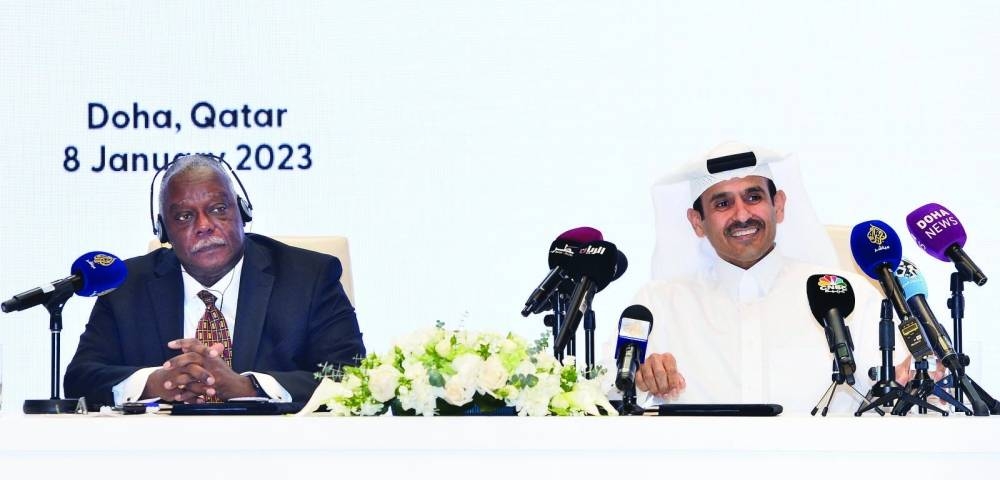The $6bn Ras Laffan Petrochemicals complex will help meet the rising global demand for high-density polyethylene from 2026, when the largest ethane cracker in the Middle East and one of the largest in the world begins production.
Qatar is currently supplying petrochemical products to countries and markets around the world.
At the agreement signing with partner Chevron Phillips Chemical (CPChem), HE the Minister of State for Energy Affairs, Saad bin Sherida al-Kaabi said: “We are delighted to enter into this exciting new venture with Chevron Phillips Chemical – a leading and highly respected international petrochemicals company, and a long-term partner with whom we have achieved many successes together building and operating plants safely and efficiently for more than 20 years. Together, our large and diverse portfolio will not just help meet the world’s growing needs for advanced plastics and petrochemicals, but will also enable balanced growth and facilitate human development in a responsible and sustainable manner.”
Bruce Chinn, president and CEO of Chevron Phillips Chemical said the polyethylene units at Ras Laffan will use Chevron Phillips Chemical’s MarTech loop slurry process to produce high-density polyethylene, which will primarily be exported from Qatar.
The Ras Laffan project will be jointly implemented by QatarEnergy and Chevron Phillips Chemical Company.
They have set up a joint venture company to implement the project, in which QatarEnergy will own a 70% equity share, and CPChem will own a 30% share.
Chinn said polyethylene is used in the production of durable goods like pipe for natural gas and water delivery and recreational products such as kayaks and coolers. It is also used in packaging applications to protect and preserve food and keep medical supplies sterile.
The facility will be constructed with modern, energy-saving technology and use ethane for feedstock, which along with other measures, is expected to result in lower greenhouse gas emissions than similar global facilities.
“At Chevron Phillips Chemical, we continue to grow our global asset base where there is access to reliable, affordable feedstock. This investment will help meet global demand for polyethylene products,” Chinn said.
According to Chevron Phillips Chemical the company’s “MarTech loop slurry technology is the number one choice worldwide for HDPE production.”
“Licensed in 20 countries, resins produced with our PE loop slurry process account for more than 20% of worldwide HDPE.”
The Ras Laffan Petrochemicals complex, expected to begin production in 2026, consists of an ethane cracker with a capacity of 2.1mn tonnes of ethylene per year, making it the largest in the Middle East and one of the largest in the world.
It also includes two polyethylene trains with a combined output of 1.7mn tons per year of high-density polyethylene (HDPE) polymer products, raising Qatar’s overall petrochemical production capacity to almost 14mn tonnes per year.

HE the Minister of State for Energy Affairs, Saad bin Sherida al-Kaabi, and president and CEO of Chevron Phillips Chemical Bruce Chinn at the QatarEnergy headquarters on Sunday. The Ras Laffan project will be jointly implemented by QatarEnergy and Chevron Phillips Chemical Company. They have set up a joint venture company to implement the project, in which QatarEnergy will own a 70% equity share, and CPChem will own a 30% share. PICTURE: Shaji Kayamkulam

